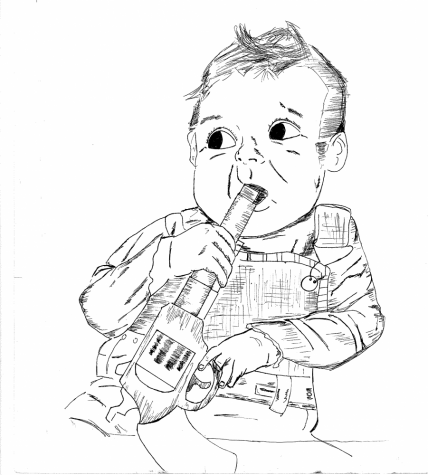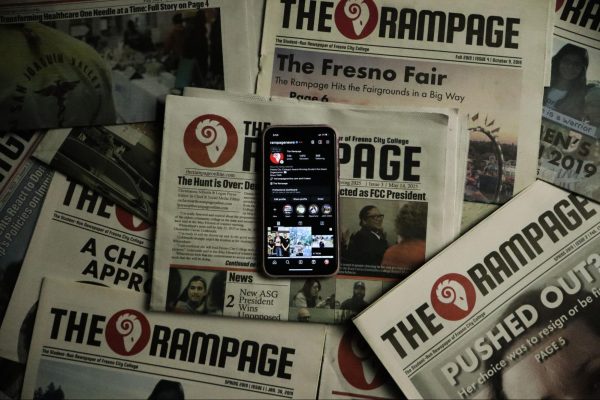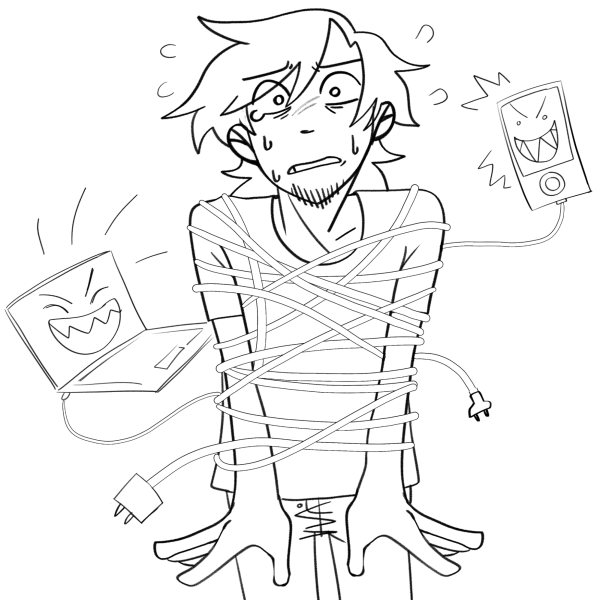The Tea: Mistakes, Missteps and Retractions–How Journalists Correct the Record
A previous version of this article stated that we’re living in an era of clickbait, and that journalists have been called the enemy of the people. That is completely correct and, moreover, this column written by Tommy Tribble, editor-in-chief of the Rampage, hopes to clear up the misconceptions about journalism for the sake of transparency.
See what I did there?
This week, the tea is that journalists aren’t perfect. They are, unfortunately, human. And humans are famously good at erring.
Journalistic mistakes can range anywhere from spelling the vice president of ASG’s name wrong to claiming that Fresno City College failed a routine pool inspection.
Everybody talks about journalists as living recorders and living cameras, and we tend to fixate on the inanimate objects in those metaphors. The camera. The recorder. But at the end of the day it’s all about the living, breathing, human. The animate. The flawed.
Recorders and cameras don’t really make mistakes; the people operating them do.
It’s important to understand first that these oversights are never purposeful, never intended. Mistakes happen organically. They happen because we’re listening back to a recording on three hours of sleep, because the deadline is that night, and we’re typing furiously.
It happens because we didn’t do all the research we should have. It happens because we misheard, misread, or misunderstood.
But at the end of the day, the mistake happened, and people take it personally. More serious mistakes contribute to the culture of misinformation that’s defined this era of journalism and politics. The Rampage wants to avoid that at all cost.
Plus, if somebody spelled my last name with one B I’d be furious.
So when mistakes happen, and they will, how can we as journalists correct the record? The Rampage has a print run of 3000 copies. Making a mistake in print means making 3000 mistakes.
However, it’s impossible to reprint an issue and run it on a different day.
We live in an increasingly online world, and journalism is increasingly digital. When we make mistakes at the Rampage we run the retraction at the top of the online article in italics. It becomes the first thing future readers read, forever disrupting the natural function of the original lede.
This gesture can seem ineffectual because most will see the mistake while few will see the retraction. Still, we correct the record for future readers, researchers, and the reporters who will reference old work for new stories. The retraction is more than a gesture, it’s a commitment to our integrity as a news organization.
All this talk of organizations and researchers and integrity–we always have to get back to that living camera, the human behind the pen.
The truth is that mistakes feel horrible. As a student journalist, it calls everything into question. It makes important work feel like a kid’s game. You’re not a journalist anymore, you’re a kid playing at it.
Like when I wrote that Esmeralda Soria, city councilwoman and political science professor at FCC, worked alongside Marco Rubio. She did absolutely nothing of the sort. I wrote that before I was editor-in-chief, at a time when the Rampage was just a class to me.
I still carry that moment of shame with me. It makes me listen more closely to my recordings. It makes me take better notes, and ask better questions. It’s with me when I pour over research, when my eyes are heavy and I want to procrastinate.
Mistakes are inevitable, but we should never aspire to them. Mistakes make us more careful reporters, but we never want them, never need them, and never hope for them. We never err out of spite, only out of negligence.
When we do misstep, we correct the record.
And that’s the tea.

Tommy Tribble is the 25-year-old editor in chief of the Rampage, formerly the opinion editor. Tommy is an English major, a writer, an aspiring novelist,...








